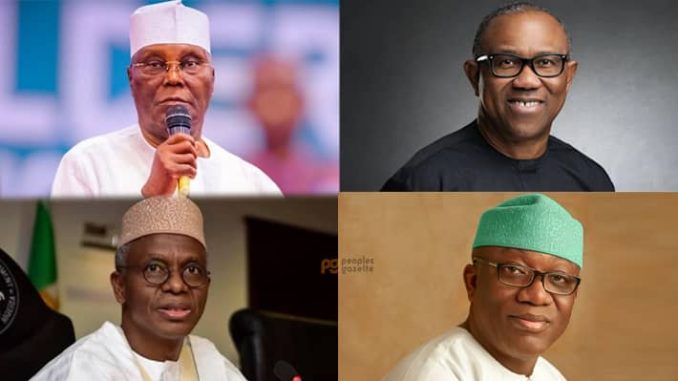
The worst possible outcome of the 2023 presidential election would have been an Atiku Abubakar victory. That would have established such a bad and dangerous precedent, causing serious damage to Nigeria’s unity and worsening the country’s already problematic management of diversity.
Atiku ran for the PDP presidential ticket because only a northern candidate could win. This was not a subtle campaign but a full-throated one. Atiku, Aminu Tambuwal, and their associates, such as Raymond Dokpesi, went on national TV to cite controversial population dynamics as the reason only a northerner could win the presidency.
The naiveté displayed by these men, who ordinarily should be considered seasoned political strategists because of the positions and offices they had occupied, was outstanding. Their actions misread the Nigerian political system or, even worse, displayed ignorance of the country’s political behaviour and demographics.
But their desperation to win the PDP’s presidential ticket and challenge the ambitious and cash-flushed Wike clouded their judgment, leading them to pursue a line of reasoning that was not only wrong but clearly against their long-term interests.
This ‘only a northerner can win’ campaign was so steep that it impacted the rival APC. I was a strategist for the campaign of a southern presidential aspirant in the APC, and one of our notable challenges was the growing narrative that only a person from the north could win the general election, especially if the PDP elected a northern Presidential candidate.
The argument seemed silly and easily dismissible, considering Nigeria’s plural demographics, voting behaviour, and presidential election results since 1999. But even in casual conversations, one could tell that the narrative was gaining ground. Soon, there was chatter of a plot in the Villa to ensure that a northerner emerged as the APC presidential candidate, making it an all-north final—Atiku in the PDP and the northerner emerging in the APC.
I wrote an article to repudiate this argument and criticise Atiku for his myopia. My point was that the 1999 constitution’s framers made it impossible for anyone to emerge as President without substantial investments and support from the other regions. That is why regional parties like Obafemi Awolowo’s UPN and Nnamdi Azikiwe’s NPP have not succeeded in the Fourth Republic. To be a successful presidential candidate, one needs a broad coalition straddling the North and South.
I noted that Muhammadu Buhari’s insular mindset made him a serial loser of presidential elections until he formed an extensive coalition of leading northern and southern politicians. I also pointed out that southern candidates Goodluck Jonathan and Olusegun Obasanjo had won the presidency handily through such political alliances.
In any case, I argued that assuming Atiku was right that the north’s population gave it such a superior advantage that political parties were compelled to field only northerners to ensure victory, did this mean that northerners would rule Nigeria perpetually?
Of course, the results of the 2023 presidential election confirmed my arguments and put a lie to this line of reasoning. Atiku’s PDP, expectedly, performed poorly in the South, losing its strongholds of the South-South and South-East to Peter Obi’s LP. Even in the North, he only won nine out of a possible 19 states, which was insufficient to put him ahead in the presidential race.
But imagine he had come out on top despite his alienating campaign against southern demographics. That would have disrupted the gentleman’s arrangement for power to move from one zone to another and validated the argument that political parties don’t have to broaden their outlook to win.
As the opposition rallies toward the 2027 elections, it is necessary to draw attention to the PDP’s error of 2023. Atiku, Tambuwal, and co.’s narrow messaging cost the party its southern support base, making it impossible for the PDP to win. Therefore, The emerging coalition must be wary of some politicians’ inclination to mask personal ambition as the group’s own and thereby foist an image that is narrow, alienating, and limiting.
That was the PDP’s fatal undoing in 2023, as it diminished from a national party with a support base sufficiently spread across the country to Atiku’s electioneering vehicle that pandered to a limited demographic.
Therefore, the new coalition’s leaders must insist that it remain broad-based, drawing strength from its plurality and diversity like the APC did when it was formed in 2013. Anything short of that would be Nunc Dimittis, a funeral for a stillborn rather than the building of a people-owned political party capable of rescuing the country.
Julius Ogunro is the director of research and strategy at the Future Now Initiative, an Abuja-based civic group


